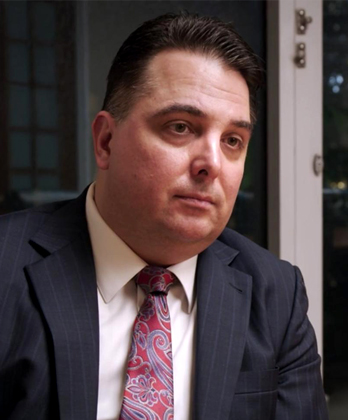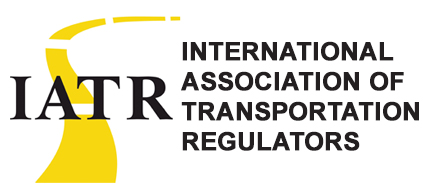BY MATT DAUS
Matt Daus, transportation attorney and president of the International Association of Transportation Regulators (IATR), recently presented at the World Road Congress in Prague, an event held every four years to share techniques and experiences of the global road infrastructures and road transport industries. Associations like IATR and PIARC (producers of the World Road Congress) have been working on best practices for emerging technologies—including electric and autonomous vehicles. IATR and PIARC are now working on separate but related projects involving the transport or road agency of the future. During IATR’s recent conference in Scottsdale, Arizona, this past September, Daus said that IATR would embark on a mission to make recommendations to modernize government administrative agencies that regulate the taxi, for-hire vehicle, and TNC industries, while addressing the mobility governance issue. These are some of his remarks.
 IATR President and Transportation Attorney Matt Daus Mobility services and transportation agencies overseeing large operational networks and infrastructure are experiencing pronounced governance problems. They are consistently plagued by fractured and inconsistent regulation and oversight, silo mentality, lack of communication and collaboration, and failure to modernize organizationally. For example, look to the recent disputes between California agencies when attempting to expand robotaxi service statewide.
IATR President and Transportation Attorney Matt Daus Mobility services and transportation agencies overseeing large operational networks and infrastructure are experiencing pronounced governance problems. They are consistently plagued by fractured and inconsistent regulation and oversight, silo mentality, lack of communication and collaboration, and failure to modernize organizationally. For example, look to the recent disputes between California agencies when attempting to expand robotaxi service statewide.
 During my State of the IATR address to conference attendees, I announced that we are going to do a deep dive into a new extensive report on the taxi, for-hire vehicle, and TNC regulatory agency of the future, which will dovetail with a project from World Road Association (known as PIARC). The agency of the future report will set forth the history and current status of the regulatory agencies’ structure and operations, while suggesting a new framework to modernize regulation. This report will review how agencies around the world are operating to determine best and accepted practices, and IATR will engage stakeholders on all sides—from policymakers to the regulated industries and the users of these services—to create a vision for the future guided by the following principles:
During my State of the IATR address to conference attendees, I announced that we are going to do a deep dive into a new extensive report on the taxi, for-hire vehicle, and TNC regulatory agency of the future, which will dovetail with a project from World Road Association (known as PIARC). The agency of the future report will set forth the history and current status of the regulatory agencies’ structure and operations, while suggesting a new framework to modernize regulation. This report will review how agencies around the world are operating to determine best and accepted practices, and IATR will engage stakeholders on all sides—from policymakers to the regulated industries and the users of these services—to create a vision for the future guided by the following principles:
- The taxi, limousine, for-hire vehicle, and TNC regulatory agency of the future is a dynamic and responsive organization that oversees the safety, efficiency, and sustainability of the industry and:
- Uses data-driven and evidence-based approaches to regulate supply and demand, as well as the quality of services;
- Fosters innovation, while ensuring fair and transparent practices for both drivers and passengers; and
- Collaborates with local governments, transport authorities, operators, trade associations, and consumers to develop and implement policies and standards that benefit the public interest.
- The agency is accountable to the public and operates with integrity and professionalism.
- Current regulatory systems are often fragmented to regulate a single industry, with too many agencies having no uniform approach and conflicting priorities, authority, and missions.
- We need a unified paradigm and governance system that allows for a multi-modal innovative future. This includes increased coordination with other modes, and ensuring unified policy-making.
The report will explore:
- Enforcement: Modernizing enforcement practices through technology, such as virtual inspections to more efficiently enforce regulations.
- Licensing: Creating a more efficient and fair licensing system through policies—incentivizing accessible and fuel-efficient vehicles, expediting licenses for drivers with jobs waiting—and processes, like remote licensing and online transactions.
- Self-Regulation: Implementing a system that is similar to the US state TNC model and the US Federal Motor Carrier Safety Administration model oversight of motor carriers.
- Governance Framework: Setting the appropriate governance framework (state vs. local) and who regulates which aspects of the industry (e.g., insurance requirements, licensing, vehicle standards).
- Fees & Fines: Determining what is equitable and reasonable.
- Mobility Data: Setting data sharing and use practices, including determining what data is necessary, data protection and transparency, and use of data for enforcement and other purposes.
The vision of a dynamic and responsive taxi regulatory agency is a tangible goal that can be realized through concerted efforts and innovative strategies. By emphasizing data-driven approaches and evidence-based policies as well as tech solutions, this agency will stand as a beacon of transparency and integrity, fostering a culture of fairness and collaboration among all stakeholders: drivers, regulators, and riders. As we look ahead, the roadmap for the regulatory agency of the future not only embodies the principles of adaptability and progress but also underscores its pivotal role in shaping a more resilient and inclusive transportation ecosystem. [CD1123]
Matt Daus is a senior partner at Windels Marx Lane and Mittendorf, and founder/chair of the Transportation Practice Group. He can be reached at mdaus@windelsmarx.com.

